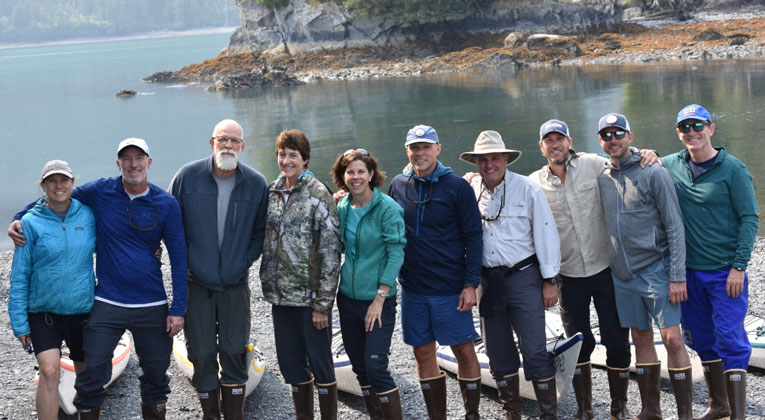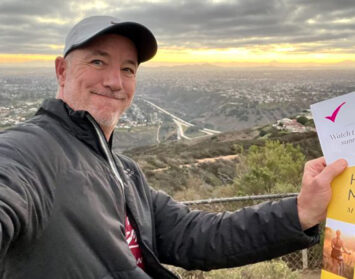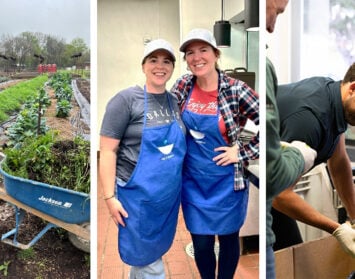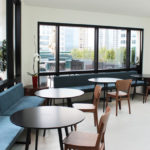By John Jarvis
Every year for the last four years I have taken a trip into wilderness with the National Outdoor Leadership School (NOLS). Each and every time it has been rich, relaxing and rewarding. And each time I try to capture some essence of the experience that I can share with my team and my family and friends back home in the front-country. But this year’s trip was different in a number of ways. First, I planned my own “custom” NOLs course. Then I personally invited the crew. It’s a pretty big ask—hey, in addition to your own summer family plans, want to spend a week with me in Alaska paddling around glaciers? They all knew me, mostly, but they wouldn’t know each other at all, so how was that going to work out? Eight interesting, willing and wonderful human beings said yes quickly, ready-fire-aim (love that) and the trip was on.
One of the cool things NOLS does on some of their trips is encourage participants to share their Leadership Journey with the group, ten minutes telling the story of “who am I?” I was slated to go first, and then I remembered something my oldest daughter Nicole recently taught me. It is called the “WAIT” method, and it stands for “Why Am I Talking?” Yep, she thinks I talk a bit too much. And I expect she isn’t wrong. I shared this with the crew, and when they were done laughing, I explained that I would go last, that I wanted to practice talking less and hearing more. It was a great experience. Thank you, Nicole.
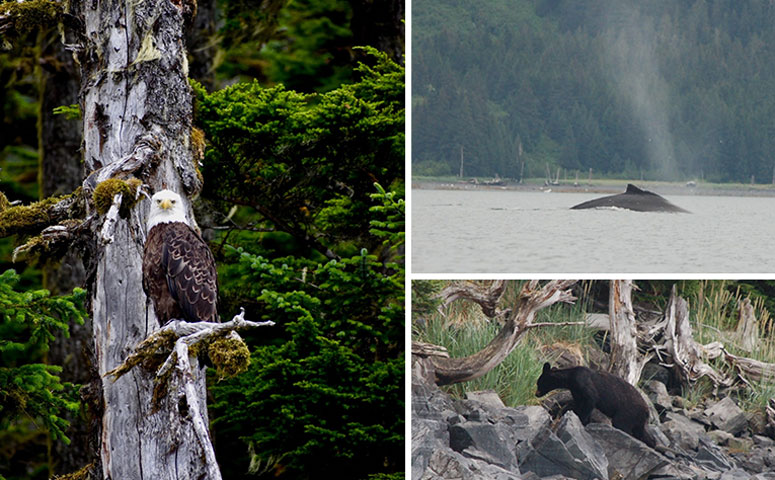
And as I flew back to civilization, thinking about what I had learned and what I might write about the experience, I thought again about sweet Nicole, and what a great idea it was for her to encourage me to “wait.” So, in keeping with that theme, and in continuing the practice, I share with you instead the musings of our crew.
Sam
Spending the last week in the Alaskan wilderness with a group of virtual strangers was an incredibly profound experience. The landscape, the scenery and the wildlife were awe-inspiring. But what I will take away from the experience, and what has left me feeling so fulfilled, was the human experience. For various reasons, 10 people made the decision, independent of one another to take on the challenge, to put ourselves in an uncomfortable position that we knew would challenge us physically and mentally. We all agreed to hit the pause button on life: work, family, friends, summer activities, etc. in order to make ourselves vulnerable to unforeseen challenges. What I learned is that we are all hungry for a deeper connection with other people, whether it be the people we are closest to, or complete strangers. And we yearn to be in an environment that offers a degree of solace, but one that also offers a support system for us to draw upon when we need help or a dose of empathy. When we share an experience, it creates a bond. We should embrace making ourselves vulnerable to new experiences and new people. With empathy, teamwork and connection, we are stronger together–the sum is greater than the parts. Acknowledging the need for connection with one another, and sharing the experience while paddling under glaciers that have been around for tens of thousands of years lends us the perspective we need to live healthy, balanced lives.
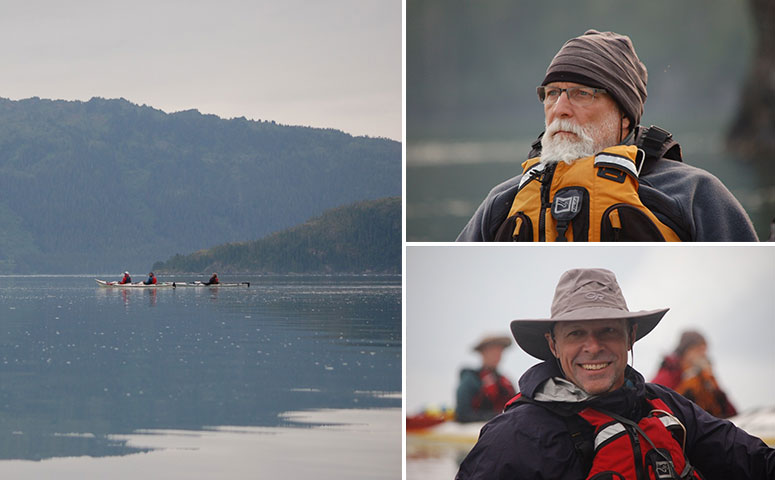
Bill M.
Prior to embarking on the JJ wilderness experience, I had the pleasure of having lunch with John to catch up and learn a little bit more about what was in store…after all I had said “yes” with precious little information other than kayaks, Alaska and NOLS (hell ya, I am in!). During the course of our lunch, John mentioned the term “Expedition Behavior.” I wasn’t familiar with the term and therefore clearly had no idea what good expedition behavior might involve. Wanting to be sure I was meeting the guidelines and might then earn a second invitation, I went into the adventure with a few self-imposed guiding principles which turned out to be reasonably on target:
- Own your own preparations: Come to the party prepared and on-time. Read the advanced material, procure what you think you will need and be flexible in its use. In short, take this preparatory work seriously.
- In the field, manage your gear and yourself in a quietly competent manner: Be organized, don’t take up a lot of room and be ready to switch gears to the next activity smoothly.
- The unexpected will occur: Be ready to pitch-in when the unexpected occurs. Having managed your own gear/self competently you will be allowed the time and attention to help and be productive in the unexpected crisis. If you aren’t part of the problem, then be an active part of the solution.
- Be looking around corners: Think about the next 24 hours. What can I do to be out in front of a potential issue…how can I make this experience easier and more enjoyable for myself and the team as a whole?
- Be open, honest and an active listener: Be on “receive” more than you are on “send.” Listen, watch, ask questions and when appropriate…be quiet.
OK, these guiding principles weren’t perfect, but they were pretty close. And from what I could tease out of the NOLS Instructors, they did seem to reflect a pretty solid basis for good “expedition behavior.” The now obvious question is under what circumstances are the above behaviors inappropriate? I would submit not many.
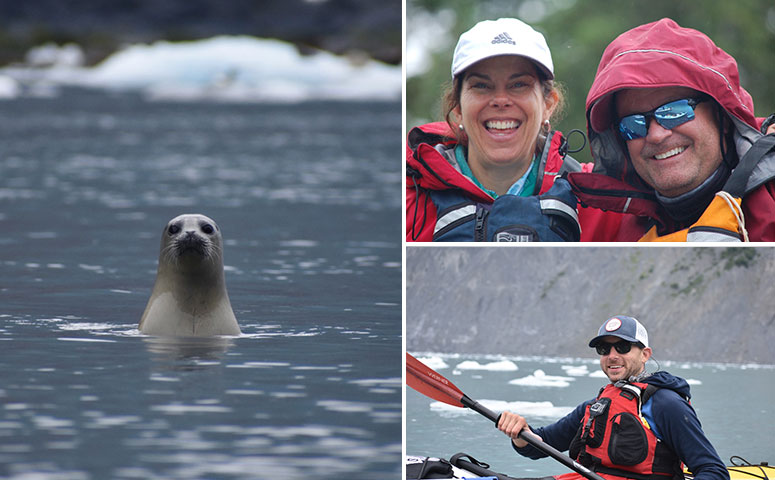
Susan
Leading up to the trip I was excited about the idea of kayaking and camping in the Prince William Sound. Nothing about the trip made me nervous or anxious, until I watched two video clips our instructors shared to familiarize ourselves with the area in Alaska where we would be paddling. After watching one video that captured the largest-ever glacier calving event, which was fascinating, and then a 2nd video showing a tiny kayak amidst massive ice floes, my mind went to the worst case scenario: “What if a glacier calves right in front us when we’re in our kayaks? What kind of waves would that generate and how would we fare if that happened?” I remembered how cold the water would be and the idea of capsizing in frigid water added to this story in my head. Then I remembered that NOLS is well known for wilderness safety and I decided to push that story into a small corner of my mind.
Over the course of the five-day trip, I had many situations that in my mind were daunting. Ironically, after putting out of mind my fear of rolling the kayak into chilly water, it was, of course, the first thing we did, as a “safety test,” and yes it was cold, but we all handled it just fine. We were introduced to a new term, “relaxed efficiency,” which was the attitude we were encouraged to maintain over the course of our week in the Alaskan wilderness. And attitude was important as we covered over 50 miles of paddling, and as I figured out if my body would agree that going to the bathroom with a shovel was possible, and whether I would be able to sleep with daylight all night long. Turns out, I had no issue whatsoever with any of my concerns. Which for me means, stop letting my mind be a mental barrier to both fully enjoying what I commit to doing–aka saying “yes” to John—AND to believing that I can create what I really want in my next career chapter. I plan to use my mind as a magnet to attract what I’m seeking for, interesting and gainful work that will be the most rewarding chapter of my career yet.
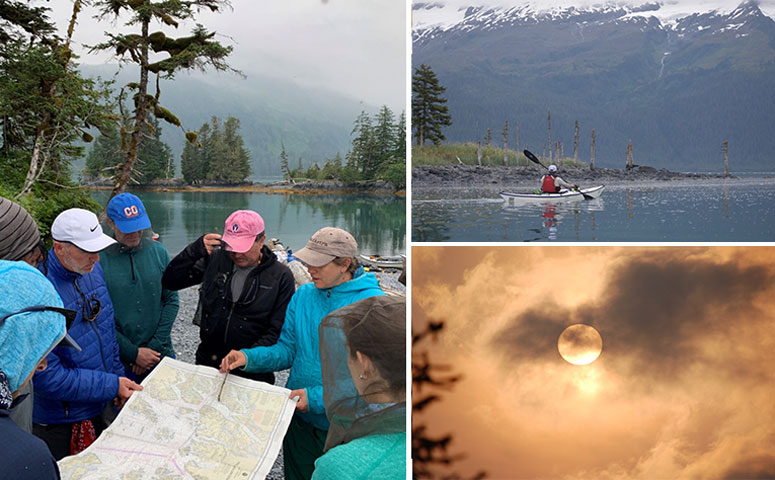
Mary Beth
Could I do this? Could I carry my own weight? Did I trust myself? I was scared, as my shoulder and arm were really sore. I have never kayaked for more than a few hours and never sea kayaked—where you have to carry all your own gear? Sitting for hours on end with legs straight out. A friend said she wouldn’t do it, and this gave me more self-doubt. And on day one, we had to roll the kayak into the freezing water of Prince William Sound and get out. This really scared me!
I did it! STEP ONE! Packed all my items in the kayak and then paddled 14 miles on day one. Once I figured out how to paddle efficiently, I felt better and more successful and more part of the team. I was never made to feel less as all were valued and made to feel important. NOLS really facilitates group bonding and lifelong friendships.
This was God’s beautiful part of the world and I felt blessed to experience the quiet, the peace, and the beauty. Awe is the word that comes to mind. No noises, no music, no cars, just nature. I realize now that I need this in my life much more frequently.
To hear a baby otter cry for its mommy and see their reunion, to see seals lounging on ice floes and humpback whales spouting then diving with their massive fluke the last part to go down, to see glaciers calving; back home now I just close my eyes and thank God for this AWE-inspiring trip. Yep, I need more time in nature, and I’m even considering doing it alone!
Dave
Choice: The experience is what we make it—we have choice. Although our weather was agreeable and the natural beauty was breathtaking, this is not what generated the strong outcomes and bonding of this group. It was the collective decision of the group to choose their individual attitude and behavior—how they were going to show up. If we had rain and inclement weather, poor visibility, etc. the outcomes, the bonding and growth could still be substantial. I constantly remind myself that we don’t have control over much, yet we have choice in just about everything.
Pace: Life can be busy, hectic and distracting. I am reminded of that in the field and remember that pace can be what we practiced in the kayak and at camp. We can take that pace and thoughtful approach back with us to our lives.
Simplicity: We pare down what we bring when we go in the wilderness and we pare down what we do. We eliminate a lot of clutter and distraction. We only have a few responsibilities yet they are important ones. If you are cold, you put on another layer, if hot you take one off. If someone needs assistance with gear you jump in and lend a hand. We paddle, camp, eat, look for beauty, and analyze risk and have time to learn about others, learn about ourselves. If we are disciplined we can bring this simplicity back to our busy world. I find this very challenging at times. I like to institute a “pause” sometimes—to reground myself, refocus and remember what is important. In the wilderness this comes easily to me, but when I am faced with numerous distractions, tasks and “life,” I find it more challenging. This is a constant reminder for me, and the pause helps.
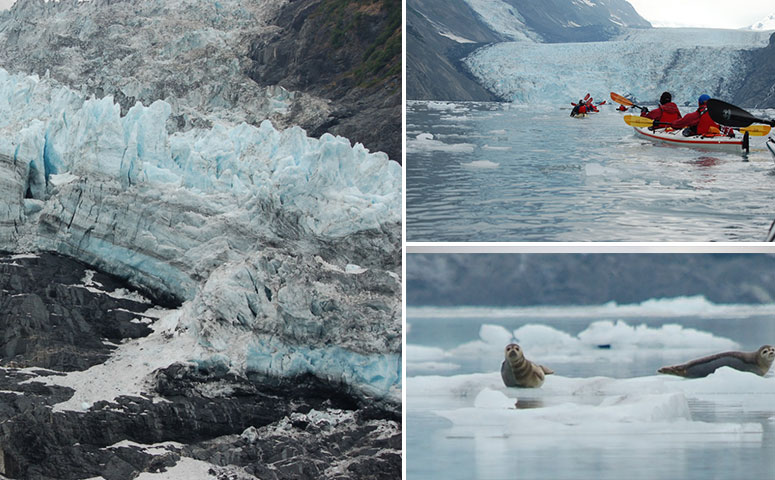
Bill B.
Back at home now, sitting on a milk crate in my plank-board study wedged between the noisy fridge and the backdoor, I could smell the mellowing cukes in the make-shift picklery in the back-porch closet as the mosquitos hummed, searching for a screen door opening. Surrounded by post-it notes full of ideas for a post-trip remembrance, but at a loss for where to start, I remembered that Robert Louis Stevenson had a penchant for stringing together contrary adjectives…
On a recent kayaking trip to Alaska’s Prince William Sound in mid-July, I found threatening, hospitable, stormy, sunny weather as I kayaked with a seasoned, inexperienced, hard-hosed, vulnerable group of determined individuals. Never have I been with such a disparate collection of intrepid souls that were able to coalesce into a group so quickly with nary an ounce of drama nor smidgen of contention—was it age, experience or both?
As was bound to happen on an outing of this caliber, robust members of this group of eight found themselves challenged and strained after many days of grueling kayaking. On the final day, two august yet physically compromised individuals ended up in the same boat when glaciers loomed, mini-icebergs seasoned the water, and currents threatened. Our guides quickly and astutely determined that an on-the-water crew re-balancing was necessary. The enlightened eight, initially startled at the possibility, surveyed the water’s edge—a non-existent shore—and then absorbed the balmy morning’s fate; we were going to need to switch out paddlers between kayaks on the frigid open water. Quickly, two boats were positioned alongside each other and the stern paddlers were deftly exchanged, coaching provided by the guides, the other boats providing direct or moral support. This seemingly outrageous maneuver, executed without incident, was emblematic of the experience we shared over five days–growing together and forever joined by a deep commitment to teamwork.
Russ
It has taken me some time to allow the ticker tape of emotions, memories and personal achievements from our Alaska journey to settle on the street below so I could take better stock of this adventure. It has dawned on me that, as I spend more time looking at the trip photos with friends and family, my longing to return to the breathtaking views of Prince William Sound is actually being driven by my desire to reconnect with my fellow Soldiers of the Sound. I went north to find the most beautiful part of America and did just that when I met the amazing people who came with me from the lower 48. This is the core of my adventure, the memory I will have decades from now when asked what I thought about my trip to Alaska. My seven fellow explorers and our two guides, (now better referred to as 10 friends) will forever be the reason why Alaska is about discovering the world’s real beauty.
I couldn’t have said it better myself.
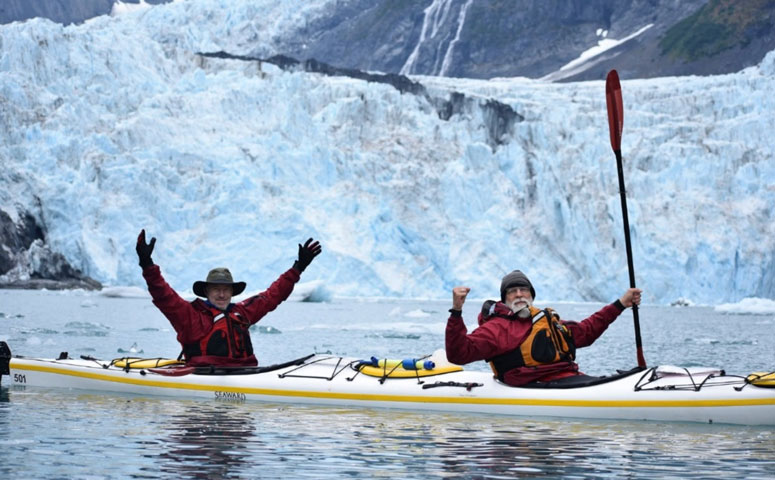
John Jarvis is a managing director at Hughes Marino, a global corporate real estate advisory firm that specializes in representing tenants and buyers. Contact John at 1-844-662-6635 or john@hughesmarino.com to learn more.

